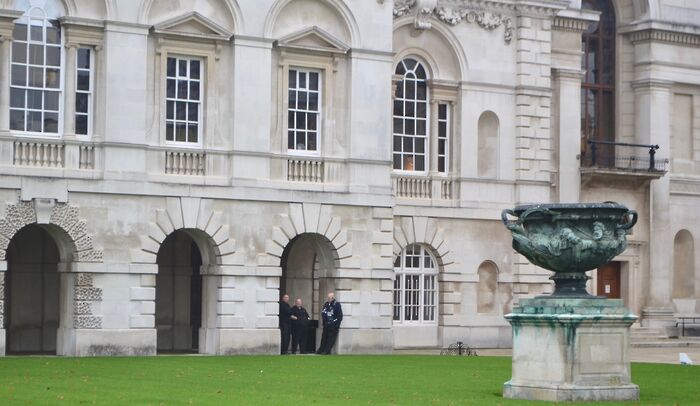Noam Chomsky joins calls for ‘urgent’ divestment from fossil fuel sector
Chomsky joined nine other intellectuals and over 200 Cambridge academics in demanding an ‘urgent shift away from fossil fuels’

Alongside left-wing political activist and intellectual Noam Chomsky and ten other British intellectuals, Cambridge academics have issued renewed calls for Cambridge to commit to fully divest its £6.3bn endowment.
In an open letter released today, 200 Cambridge academics have called for greater transparency and accountability in the operations of Cambridge’s Investment Office – the University office tasked with maximising Cambridge’s endowment.
The open letter describes the Investment Office as “stewards of the resources that will sustain this institution’s future”, adding that its actions “deeply impact the public it serves”.
The letter’s release comes as five members of University Council signed a note of dissent to the Council’s annual report over being restricted access to Investment Board documents – in their note, they said: “we cannot properly discharge our duty as trustees of the University if we are arbitrarily and persistently denied access to such documents”
The letter has also demanded structural changes to the Board, that “at least half” of the Investment Board, which reports to Cambridge’s Finance Committee on Investment Office operations, be comprised of “elected student and staff representatives, and that the Office hold at least one open meeting each academic year to report on its activities and take questions”.
Alongside the letter which further demands that Cambridge divest from the fossil fuels industry “within 5 years”, ten academics from other universities, including Chomsky, issued a statement calling on the University to commit to divest its endowment, saying: “It is time Cambridge University listened to the science and its own academics.”
The statement cited an IPCC report published in October, which found that global greenhouse gas emissions would need to be cut by around 45% by 2030 to limit global warming to 1.5°C.
In a further comment to the letter, Archbishop of Canterbury Rowan Williams described the Council’s decisions on altering Investment Office governance and hiring staff as “an opportunity for the University to shape a new and constructive response to [the] challenge [of climate change].”
The calls for divestment come six months after the University Council’s landmark decision against full divestment. The Council also opted to employ an Environmental and Social Governance (ESG) Funds manager, in place of recommendations by the University’s divestment working group that it commit 10% of its endowment explicitly to ESG funds.
In September, nearly half of the nine employees of Cambridge’s Investment Office resigned – including Chief Investment Officer Nick Cavalla.
Minutes of a Council meeting held on 15th October revealed that during the transition period of replacing Investment Office staff, “further work [has been] under way to make some adjustments to governance, such as creating a better link between University trustees and the external expert investment advisors on the Investment Board”.
In the October meeting, Vice-chancellor Stephen Toope told members that there are “currently no plans for changes to the [Cambridge University Endowment Fund] CUEF Investment Strategy, the Fund of Funds model, and the internal Investment Office model”.
One of the demands of the open letter states that “the Investment Office publicly disclose the full list of companies and funds that they invest in.”
 Music / The pipes are calling: the life of a Cambridge Organ Scholar25 April 2025
Music / The pipes are calling: the life of a Cambridge Organ Scholar25 April 2025 News / Candidates clash over Chancellorship25 April 2025
News / Candidates clash over Chancellorship25 April 2025 Interviews / Dr Ally Louks on going viral for all the wrong reasons25 April 2025
Interviews / Dr Ally Louks on going viral for all the wrong reasons25 April 2025 News / Cambridge professor paid over $1 million for FBI intel since 199125 April 2025
News / Cambridge professor paid over $1 million for FBI intel since 199125 April 2025 Comment / Cambridge builds up the housing crisis25 April 2025
Comment / Cambridge builds up the housing crisis25 April 2025







